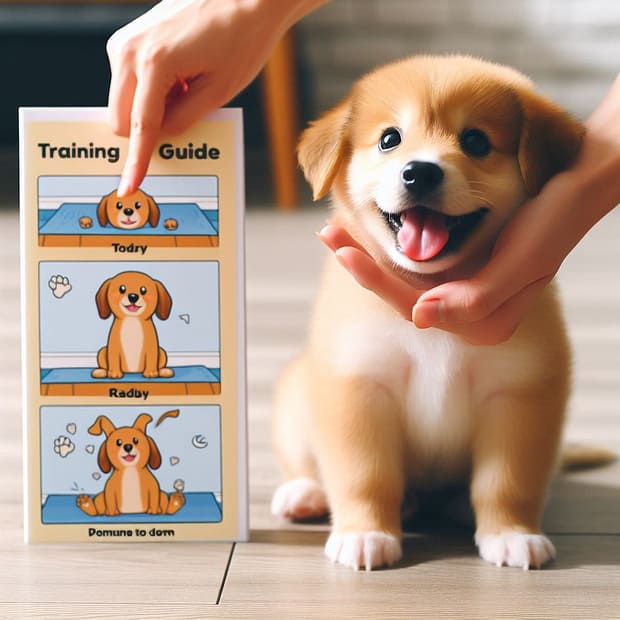For working owners, crate training is essential for ensuring your puppy’s safety and well-being while you’re away. This schedule provides a balanced approach to crate training that accommodates your work schedule while meeting your puppy’s needs for potty breaks, mental stimulation, and rest.
Key Takeaways:
- Consistency: Stick to a consistent routine to help your puppy adjust to the crate and establish good habits.
- Potty Breaks: Plan frequent potty breaks before and after work to prevent accidents and reinforce proper elimination habits.
- Enrichment: Provide mental stimulation and interactive toys to keep your puppy occupied while in the crate.
- Gradual Transition: Gradually increase crate time and independence as your puppy grows and becomes more accustomed to the routine.
Sample Crate Training Schedule for Working Owners:
Morning:
6:00 AM: Wake-Up and Morning Routine
- Begin the day by waking up your puppy and taking them outside for a bathroom break.
- Provide breakfast and some brief playtime or exercise to start the day on a positive note.
7:00 AM: Crate Time Before Work
- Place your puppy in their crate with some interactive toys and a comfortable blanket or bedding.
- Offer a few minutes of calm interaction and praise before leaving for work.
Work Day:
9:00 AM: Mid-Morning Check-In
- If possible, arrange for a mid-morning potty break for your puppy.
- A dog walker, neighbor, or family member can let your puppy out for a quick bathroom break and some attention.
12:00 PM: Lunchtime Visit
- Coordinate a lunchtime visit or potty break for your puppy, either by yourself or with the help of a trusted individual.
- Spend a few minutes interacting with your puppy, offering praise and a small treat for good behavior.
3:00 PM: Afternoon Check-In
- Arrange for another mid-afternoon potty break or check-in if possible.
- Ensure your puppy has access to water and a comfortable environment while you’re away.
Evening:
6:00 PM: Return Home from Work
- Arrive home and immediately take your puppy outside for a bathroom break.
- Provide dinner and some quality bonding time with your furry friend.
7:00 PM: Evening Exercise and Play
- Engage in a longer play or exercise session with your puppy to burn off excess energy.
- Offer mental stimulation through training exercises or interactive games.
8:00 PM: Crate Time Before Bed
- Introduce your puppy to their crate for some quiet time and relaxation before bedtime.
- Offer a special treat or puzzle toy to keep them occupied while settling down.
Night:
10:00 PM: Final Bathroom Break
- Take your puppy outside for a final bathroom break before bedtime.
- Encourage elimination with a consistent command and praise for good behavior.
10:30 PM: Bedtime Routine
- Place your puppy in their crate with a comfortable sleeping area.
- Provide a calming atmosphere with soft lighting and soothing sounds to promote relaxation.
6:00 AM: Morning Routine Begins Anew
- Repeat the morning routine to start another day with your puppy, ensuring they receive adequate attention, exercise, and care.
Tips for Success:
- Utilize Resources: Enlist the help of dog walkers, neighbors, or family members to assist with mid-day potty breaks and check-ins.
- Gradual Progression: Increase crate time gradually over time as your puppy becomes more comfortable and confident.
- Positive Reinforcement: Use praise, treats, and rewards to reinforce good behavior and crate training success.
- Provide Stimulation: Offer interactive toys, puzzle feeders, and enrichment activities to keep your puppy mentally stimulated while in the crate.
- Stay Consistent: Stick to the schedule as much as possible to establish a routine and reinforce positive crate training habits.
With dedication, patience, and a structured crate training schedule, working owners can successfully raise a well-adjusted and happy puppy while managing their professional responsibilities.












